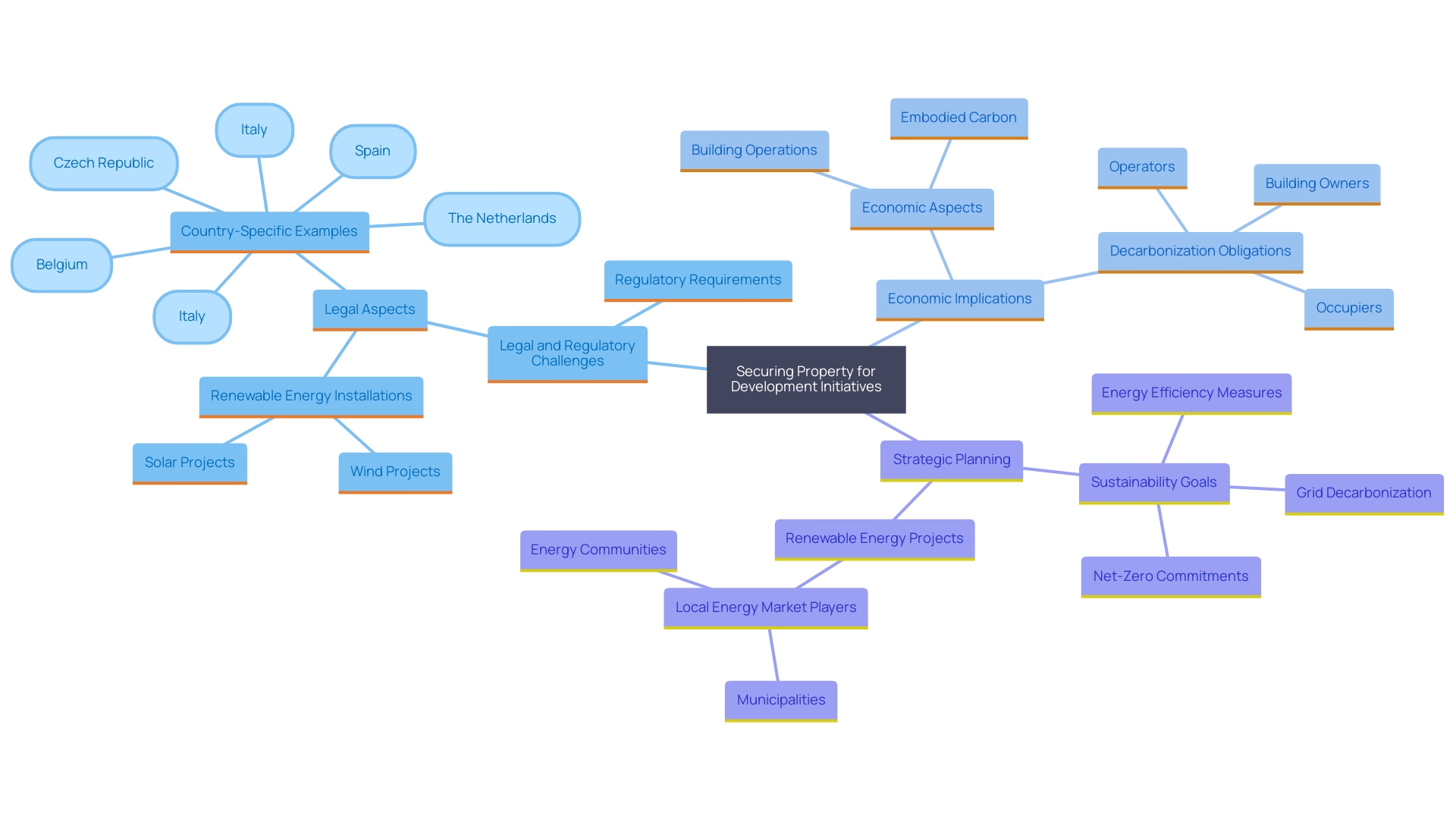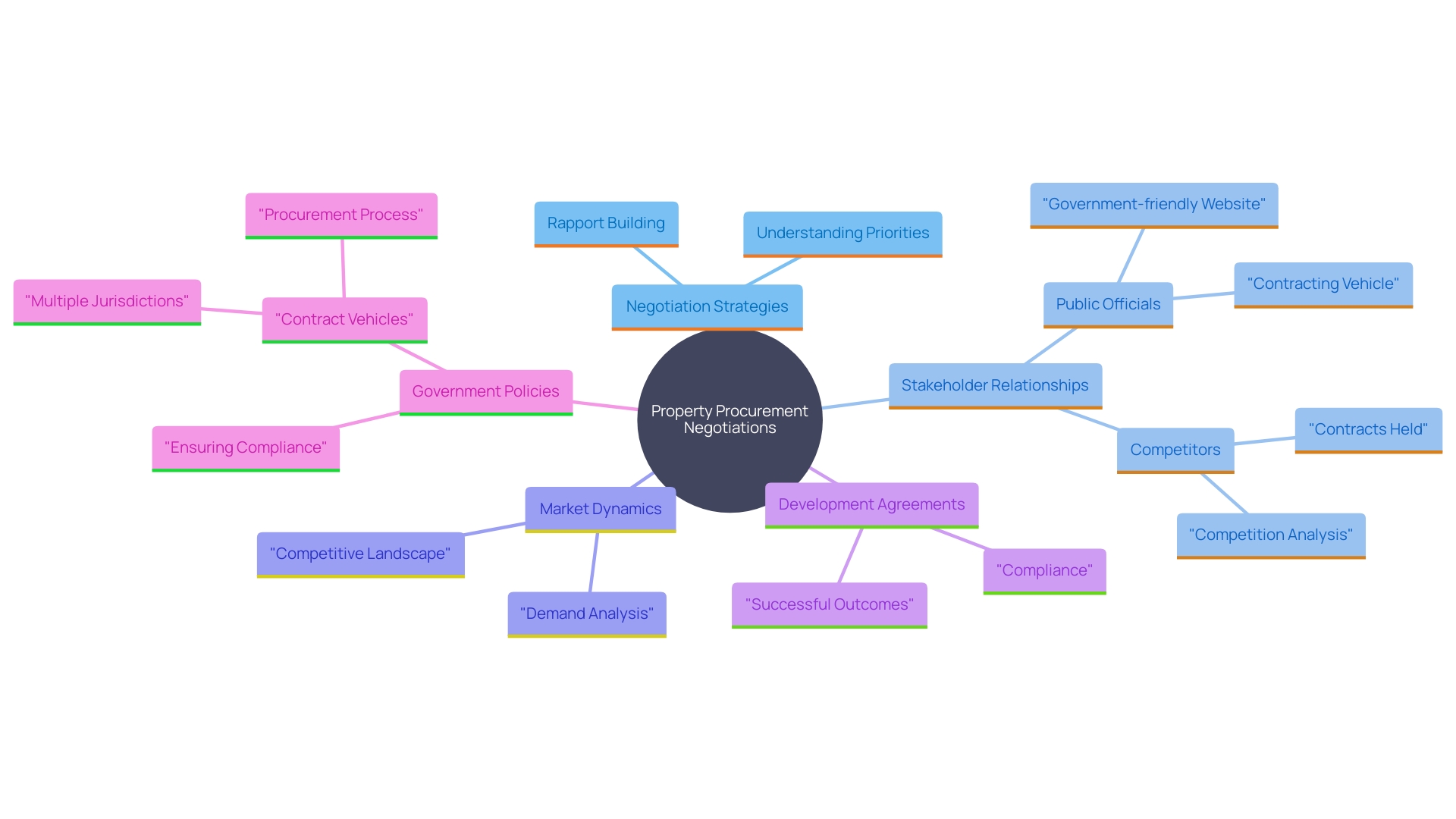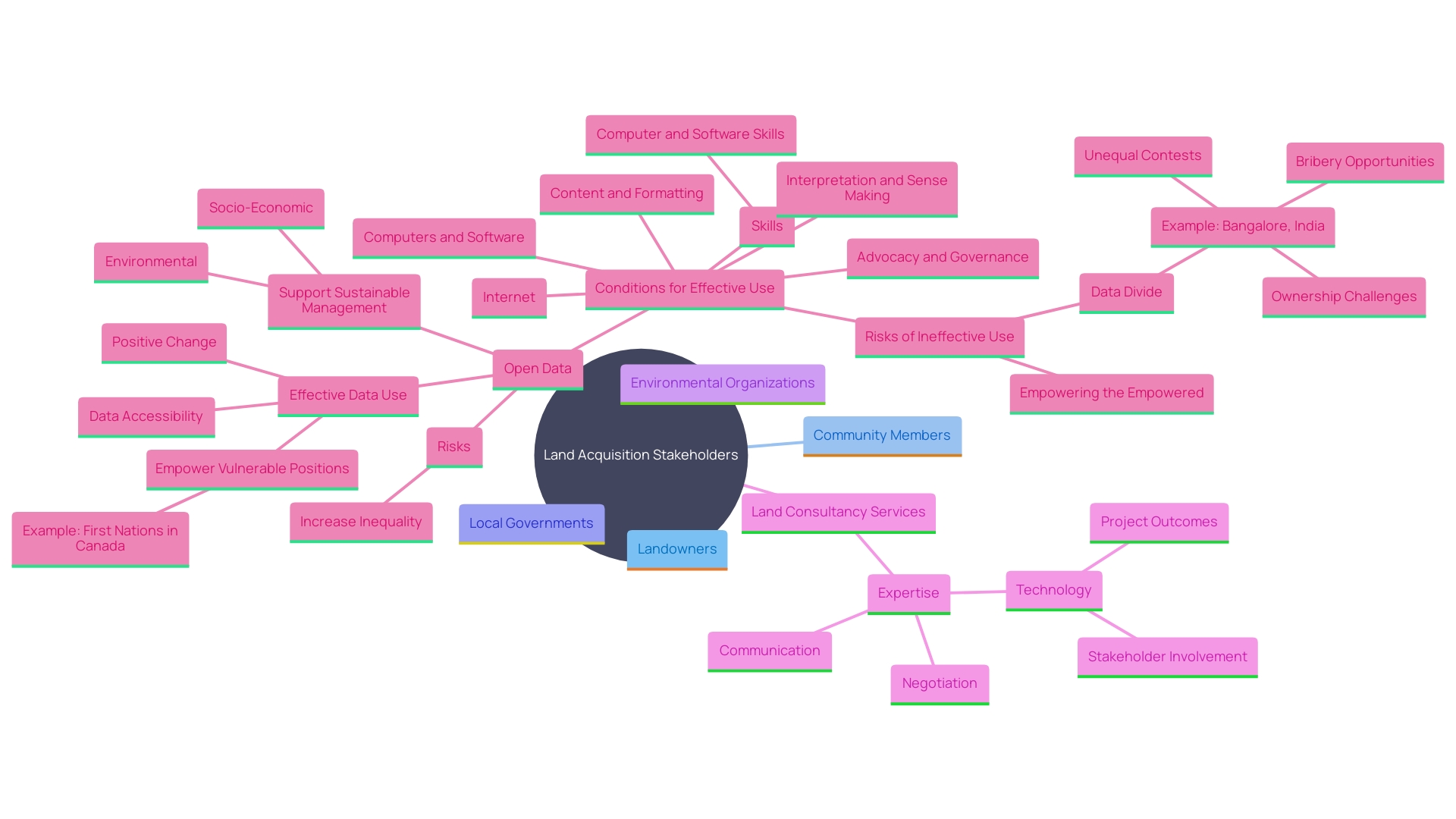Introduction
In the rapidly evolving landscape of development projects, land acquisition stands as a cornerstone, particularly within the energy, infrastructure, and real estate sectors. This critical process ensures the availability of necessary land for large-scale developments, such as renewable energy projects, which are pivotal in achieving global sustainability goals. Navigating the intricate legal and regulatory frameworks that govern land transactions is essential, requiring in-depth knowledge and strategic planning to mitigate risks and ensure compliance.
Equally important is the negotiation phase, where securing favorable terms hinges on building rapport with landowners and understanding market dynamics. Effective stakeholder engagement further enhances the process, fostering trust and collaboration among landowners, community members, and regulatory bodies. Land consultancy services, armed with expertise and technological tools, play a vital role in streamlining these engagements, ensuring that all voices are heard and that the acquisition process is both equitable and efficient.
Understanding the Importance of Land Acquisition
'Securing property is crucial for organizations seeking to obtain terrain for development initiatives in the energy, infrastructure, and real estate fields.'. This foundational step is crucial for minimizing delays and maximizing investment returns. For instance, vast areas are essential for renewable energy developments, such as solar parks, which have enabled countries like India to achieve significant milestones in providing electricity access to millions of people.
Efficient property procurement entails maneuvering through intricate legal and regulatory structures, which differ based on the area and kind of initiative. According to recent studies, the rising demand for renewable energy is reshaping site selection and influencing companies' location plans to balance sustainability goals with increased power requirements. This trend highlights the significance of strategic planning in property procurement processes.
Furthermore, the economic effect of property acquisition is considerable. For example, the cost of climate change adaptation in developing countries could reach up to $390 billion this decade, highlighting the need for efficient resource access systems to attract private financing for climate-smart infrastructure. As the landscape of commercial real estate and energy continues to evolve, securing appropriate terrain becomes increasingly vital for achieving sustainability and development objectives.

Navigating Legal and Regulatory Considerations in Land Acquisition
Steering through the complex rules and regulations is vital in the property acquisition process. This involves a detailed understanding of zoning laws, environmental regulations, and property rights. Every area has its own collection of regulations overseeing property dealings, and non-adherence can result in substantial judicial complications. For instance, recent developments in New York State and City environmental law highlight the evolving nature of regulations and the necessity for up-to-date knowledge. To address these complexities, thorough due diligence is essential. Interacting with local authorities and specialists can offer the essential understanding to reduce risks and guarantee adherence. This approach is similar to the utility sector in California, where navigating safety standards involves understanding a broad range of metrics and regulatory requirements. By performing thorough impact evaluations and working with appropriate parties, property procurement experts can more effectively navigate the legal and regulatory challenges they encounter.
Negotiating and Securing Land Acquisition Deals
Negotiation is a crucial element of the property procurement process, requiring a strategic method to effectively interact with owners, stakeholders, and regulatory entities. Mastery in negotiation can secure favorable terms and conditions, ultimately benefiting all parties involved. Building rapport with landowners is essential for smoother transactions, while a comprehensive understanding of market dynamics and property values enables informed offers. As Casey Johnson from Kansas Legal Services highlights, understanding priorities—both yours and the other party's—can anchor discussions and shape successful outcomes.
In property acquisition, finding common ground is crucial. Savvy developers and sophisticated local governments often enter into development agreements, establishing rules, regulations, and conditions for projects that balance public and private benefits. These agreements not only safeguard the interests of acquiring parties but also ensure adherence to rules and regulatory frameworks.
Securing property agreements involves meticulously drafting and finalizing contracts. These contracts must safeguard the interests of the acquiring party while ensuring all legal aspects are covered. The success of these negotiations, as seen in resource-rich countries, hinges on preparedness, expertise, and the ability to address power imbalances and asymmetric information. Effective strategies and government policies play a critical role in monitoring and enforcing these contracts, ensuring compliance and successful project implementation.

The Role of Stakeholder Engagement and Land Consultancy
Involving interested parties is crucial in land acquisition, as it entails collaborating with a diverse array of groups including landowners, community members, local governments, and environmental organizations. Effective engagement with interested parties can significantly impact the success of the project by building credibility, improving reputation, and fostering strategic alliances. As emphasized in recent studies, proactive and genuine involvement with interested parties is essential to manage risks and leverage opportunities for sustainable development.
Land consultancy services play an indispensable role in these engagements. These consultants bring expertise in communication and negotiation strategies, ensuring that the process is inclusive and conflict-free. They assist in recognizing important participants, understanding their concerns, and creating customized strategies to tackle potential conflicts. This approach is supported by findings from RMI research, which emphasize the importance of representative and transparent negotiations to avoid community backlash and ensure successful agreements.
The incorporation of technology in property consultancy services is also changing participant involvement. Resources for data gathering, property valuation, and mapping are now offering real estate experts the ability to make knowledgeable choices and convey information more efficiently. For example, the emergence of platforms such as Acres, which utilize sophisticated data management to assist professionals in the field, illustrates the potential for technological solutions to enhance interactions among involved parties and improve project results.
In summary, the function of property consultants in stakeholder engagement cannot be overstated. By leveraging their expertise and modern technological tools, they can navigate the complexities of land acquisition, ensuring that all parties are heard and that the process leads to sustainable and equitable outcomes.

Conclusion
Land acquisition is an essential component in the successful execution of development projects across various sectors, particularly energy, infrastructure, and real estate. The importance of this process cannot be overstated, as it directly influences project timelines, investment returns, and sustainability goals. As the demand for renewable energy continues to rise, strategic planning becomes imperative to navigate the complex legal and regulatory landscapes that govern land transactions.
Understanding these frameworks and engaging in thorough due diligence are fundamental to minimizing risks and ensuring compliance.
Negotiation stands as a critical phase in the land acquisition process. Effective negotiation strategies foster rapport with landowners and stakeholders, ultimately leading to favorable terms for all parties involved. The creation of development agreements can help balance public and private interests, ensuring that legal and regulatory obligations are met.
This meticulous approach to contract drafting is vital in securing land deals, particularly in resource-rich regions where power dynamics can complicate negotiations.
Stakeholder engagement is another crucial element that significantly impacts the success of land acquisition. By actively involving landowners, community members, and local governments, the process can build credibility, mitigate risks, and enhance project outcomes. The role of land consultancy services becomes instrumental in facilitating these engagements, as they leverage expertise and technology to ensure that all voices are considered.
Ultimately, the integration of effective communication strategies and modern tools can lead to more equitable and sustainable outcomes in land acquisition, reinforcing its importance in the broader context of development initiatives.




